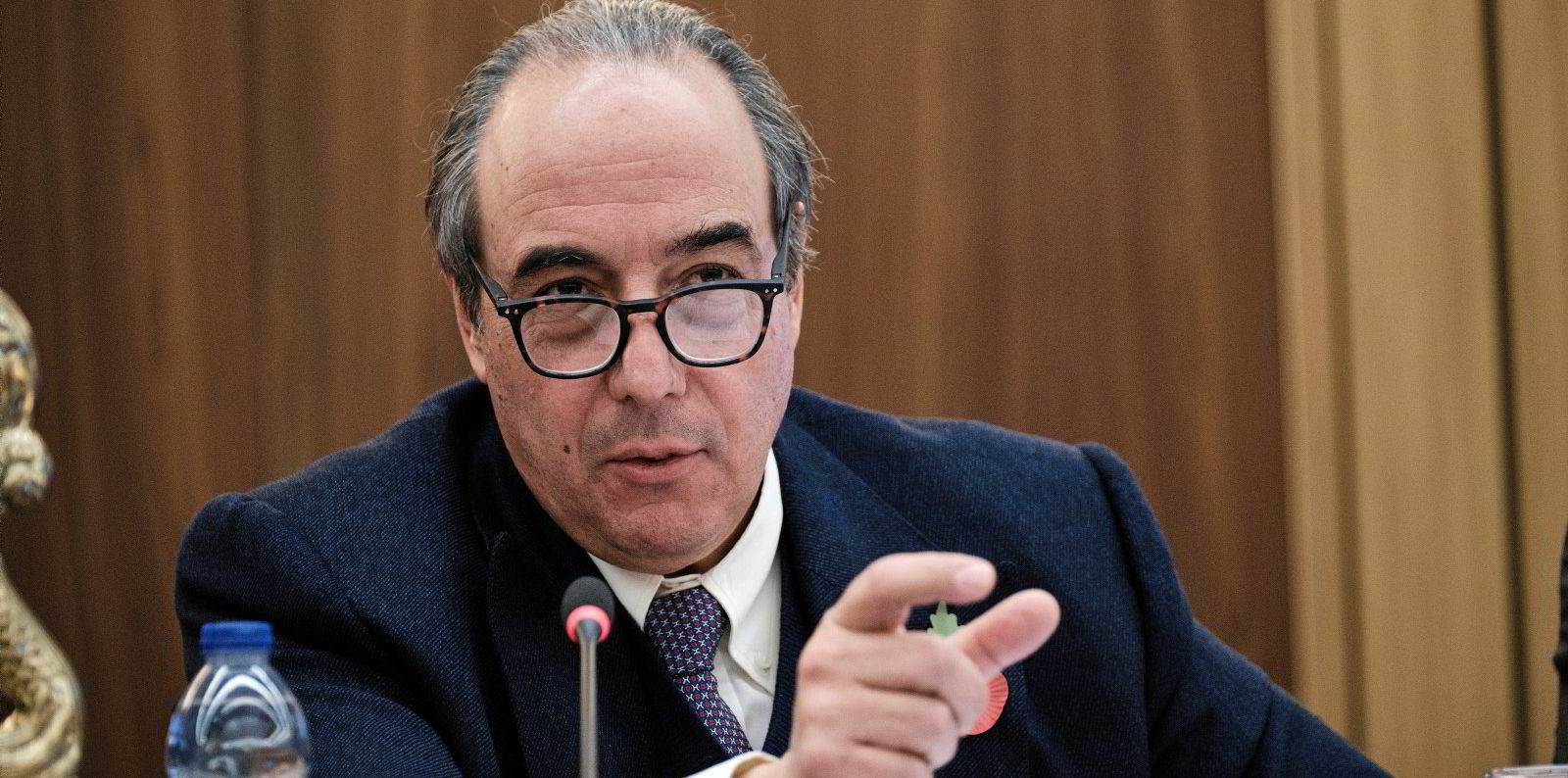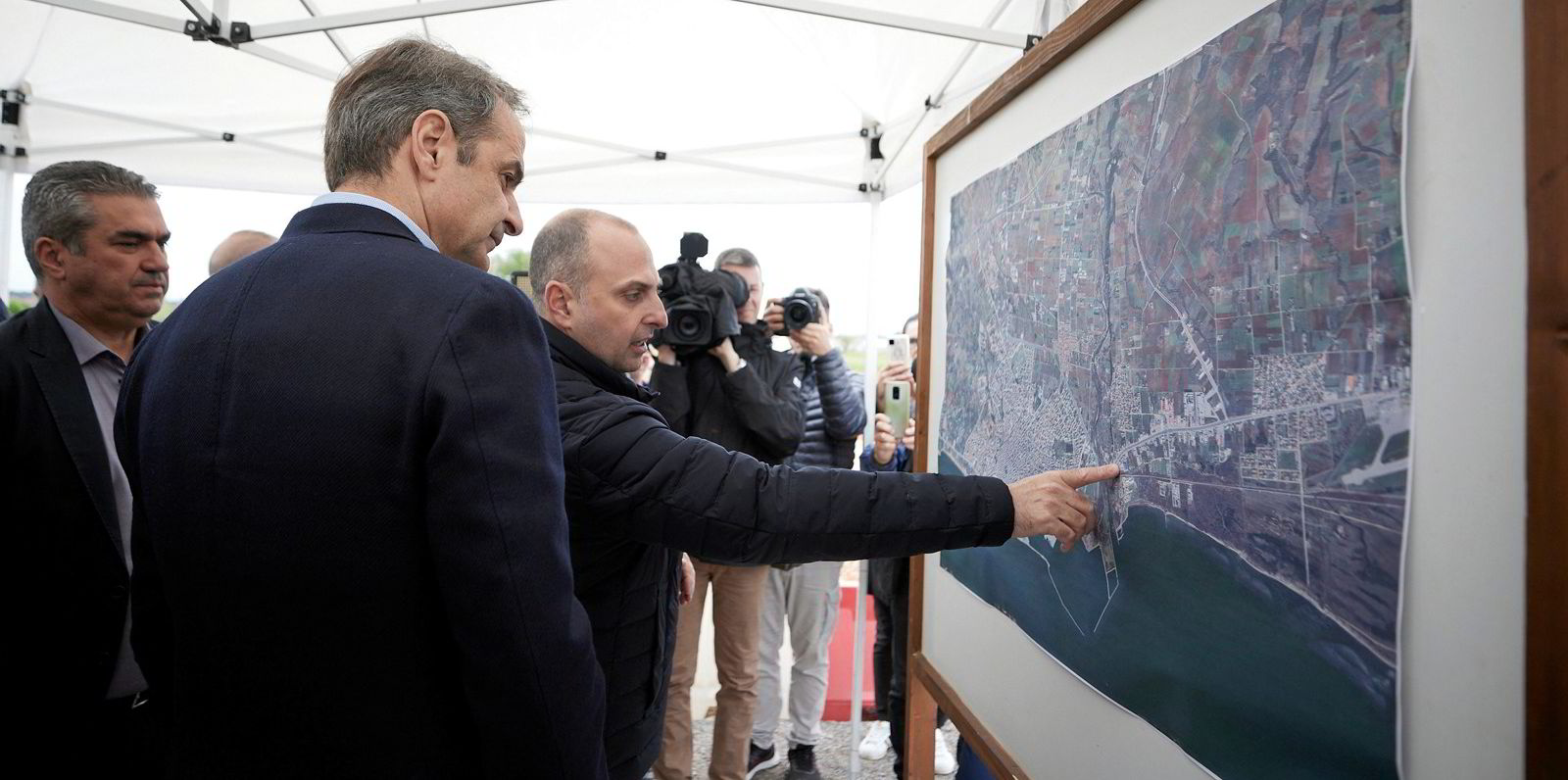If any more proof was needed for the FSRU mania that has gripped Europe, it was on display in Greece on Tuesday.
Prime ministers or state presidents from four Balkan countries — Serbia, Bulgaria, North Macedonia and Greece — travelled to the remote city of Alexandroupolis to mark the start of construction of a GasLog-backed terminal that will begin operations in 20 months.
They were joined by senior European Union policymaker Charles Michel, who heads the European Council — the powerful EU organ in which the bloc’s national governments are represented.
The Alexandroupolis FSRU terminal, which will be able to pump through 5.5 billion cbm of natural gas per year, has been a much-delayed project.
Initially conceived by Greek businessman Dimitris Copelouzos in 2009, it obtained a final investment decision by its shareholders only on January this year.
Russia’s war in Ukraine, however, is concentrating minds.
Aghast that Russian natural gas supplies could be disrupted in the diplomatic tit-for-tat of sanctions and reprisals between Moscow and the EU, Greece is stepping on the gas.

The country’s prime minister, Kyriakos Mitsotakis, announced during the Alexandroupolis ceremony that regulatory permission was awarded the week before for a second FSRU project near Athens.
Backed by the country’s powerful Vardinoyiannis business family, which owns shipping company Avin International and refiner Motor Oil, the second FSRU project began taking shape two years ago.
The licence covers an FSRU with a length of up to 300 metres and displacement of 80,000 dwt. It calls for capacity to be between 135,000 cbm and 170,000 cbm in four Moss-type tanks.
High politics
Total Greek regasification capacity will soon “be able to fully cover not just the national [Greek] market but also substitute a considerable part of Russian natural gas supplies in the Balkans”, Mitsotakis said.
Bulgaria, which holds a 20% stake in the Alexandroupolis project, saw Russian energy giant Gazprom turn off the natural gas tap late last month.
“The economic pressure that Russia applies to Bulgaria and the EU won’t work and today’s event proves this,” said Bulgarian Prime Minister Kiril Petkov.
Other European countries are feeling the heat as well, leading to a spate of similar FSRU projects hatched across the continent.
In the weeks since Russia invaded Ukraine on 24 February, reports have emerged on an almost daily basis detailing new floating regas-based projects or possible expansions of existing developments.
“The problem is that this is all knee-jerk [reaction],” one broker said, explaining that governments and the importing entities these are working with are not giving enough thought to how such projects can be made to work.
He bemoaned the fact that much of the interest is being propelled by governments who are needing to be seen to take swift action in case Russia ups the ante against Western sanctions by turning off its pipeline gas supply but are not looking at the practicalities.
“It’s all political bull****,” he added.



